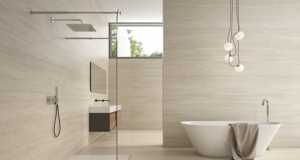Strong, resilient and with perfect thermal and acoustic insulation properties, insulating glass is already in use in applications around the world, from domestic dwellings to large buildings. Its unique design structure makes it an ideal glazing material and a product with strong growth prospects. But what makes insulating glass the preferred choice for so many applications? In this blog, we will discuss the different types of insulating glass units and their special characteristics.
Insulating glass for structural glazing
Ordinary glass is an unsafe material choice for outdoor applications because it cannot withstand the expected wind and harsh weather conditions. In turn, the increased strength of insulating glass units makes them the most preferred glass type for residential, commercial and industrial structural glazing. Multi-layered glazing enhances the strength of design elements, making them more durable, resilient and secure.
What also makes insulating glass the perfect choice for windows and doors is its adaptability to different seasons. The main design purpose of insulating glass is to protect the glazed area from excessive heat loss or gain. In the summer, this glass blocks the sun’s heat from entering the room. In winter, it prevents heat from escaping from the room.
Applications of Insulating Glass Units
Applications of Insulating Glass Units
Basically, insulating glass is a truly environmentally friendly glazing option. Thermal insulation makes it possible to reduce the load on heating and cooling equipment. It also makes it easier to achieve the desired room temperature without excessive use of electricity and energy. This is significant in terms of reducing heating and air conditioning costs and carbon footprint.
Insulating glass also has the added advantage of minimising condensation problems compared to normal single glazing. From a design point of view, however, insulating glass offers a wide range of solutions for large and small structural glazing projects. For example, it can be used to construct visually impressive all-glass facades or striking building facades by using profiles that are only visible from the inside.
Structural glazing units
Acoustic glazing
With the increase in road, rail and air traffic, acoustic insulation has become a very important glazing property. Today, acoustic insulation is an undisputed requirement in building construction to help eliminate stress and noise related problems.
Low-E IGU
Low-E IGU
In turn, insulating glass is the perfect barrier against harmful noise. Its effective sound control features make it ideal for residential applications where isolation is required.
The desired acoustic performance of sound-controlled glass can be achieved without sacrificing daylight by combining different thicknesses of glass with a PVB sandwich within a double glazed unit. When greater sound control is required, adding wider spaces between the glass panes can be helpful.
Bullet-proof glass
Widely used in bank counters, escort vehicles and other security related applications, bulletproof glass is another product type preferred for insulating glass.
Bullet resistant glass is made by combining two or more panes of glass with a PVB interlayer to prevent bullets from passing through. Its lamination properties enable the glass to provide impact protection and additional security. If damaged, the glass shatters into many small pieces of broken glass, thus reducing the risk of serious injury.
Applications of Insulating Glass Units
Applications of Insulating Glass Units
A higher level of security can be achieved by increasing the number of layers and the thickness of the glass. Insulating glass used in ballistic applications is typically five times stronger than annealed glass of the same thickness and eliminates the risk of thermal breakage.
Fire Resistant Glass
Fire resistant glass (FRG) is designed for internal and external use where thermal protection is required in the event of a fire. This type of safety glass is mainly produced using clear, multi-layer, fully insulated glass.
Different fire rated glass units provide different levels of protection. These are measured in terms of glass integrity and insulation levels. The integrity characteristics determine how long the glass will remain intact in a fire. Insulation defines the extent to which the glass limits the temperature rise on the non-fire side.
Depending on the quality of the product, fire rated glass should also ensure protection from radiation and passive protection from fire for a period of up to 180 minutes. As you can see, there are several types of insulating glass, each with its own composition, performance characteristics and uses. Nevertheless, one thing remains the same – all insulating glass has unrivalled thermal, acoustic and impact resistance.


